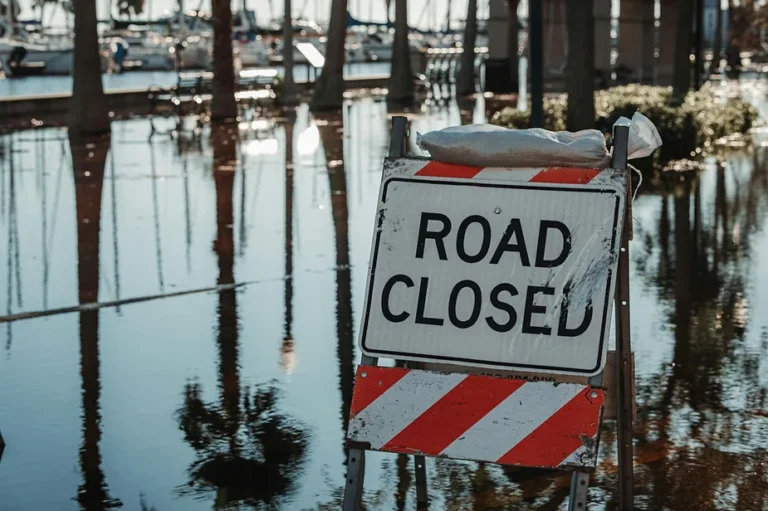Introduction
The Florida real estate market, already battered by Hurricane Helene’s devastation, is now preparing for a second onslaught. Hurricane Milton, currently a Category 4 storm, is poised to land near Tampa Bay by Wednesday, adding another layer of uncertainty to the region’s volatile housing market. This unprecedented double threat of back-to-back hurricanes is testing the resilience of the real estate industry, its investors, and the thousands of residents who call Florida home.
Real Estate Market Under Pressure
Florida’s real estate market has been on a rollercoaster recently, with soaring property prices, migration influxes, and increased demand for residential and commercial spaces. However, the arrival of two powerful hurricanes in such a short period significantly strains the market. After the devastation of Hurricane Helene, which resulted in over 220 deaths and $34 billion in damages, according to Moody’s Analytics, the market was already grappling with recovery efforts. Now, with Hurricane Milton looming, the challenges are compounding.
Milton’s winds reached peak speeds of 160 mph on Monday, indicating the storm’s massive potential for destruction. Flooding is anticipated across the region, with heavy rains expected before the storm even makes landfall. The state’s governor, Ron DeSantis, has declared a state of emergency in 51 counties, and evacuation orders have been issued. The mayor of Tampa, Jane Castor, issued a stern warning, stating that those who remain in the city when Milton arrives will put their lives at significant risk.
Impact on Property Prices and Transactions
The immediate effect of hurricanes on Florida’s real estate market is often a drop in property transactions. Many buyers and sellers pull out of the market when storms approach, halting a temporary deal. This has been particularly evident in the aftermath of Hurricane Helene, as homeowners and real estate agents faced damaged properties and delayed closings.
However, another trend follows hurricanes—post-storm property price surges. As homes are repaired and demand rebounds, the market can experience a surge in prices. For investors, hurricanes present both a challenge and an opportunity. Some may see the destruction as a chance to buy distressed properties at a discount, while others are likely to wait on the sidelines until the full extent of the damage is apparent.
In addition to immediate financial losses, the real estate market must contend with rising insurance costs. Homeowners are already facing rising premiums, and another major storm like Milton could drive these costs even higher, making it more expensive to own property in hurricane-prone regions.
Recovery Efforts Strain Resources
The timing of Milton could not be worse for Florida’s recovery efforts. Just weeks after Hurricane Helene, the state is still grappling with its aftermath, and federal emergency resources are already stretched thin. Agencies like FEMA and the Small Business Administration are struggling with cash crises, leaving many Florida homeowners and small businesses in limbo as they await much-needed aid.
These delays can slow down the pace of recovery in the real estate market. Rebuilding damaged homes and infrastructure will take time, and without sufficient funding, the process could be further drawn out. This creates a ripple effect throughout the market, as people remain displaced and transactions remain stalled.
Preparing for the Next Hurricane
While Florida’s real estate market has weathered hurricanes, the unprecedented nature of back-to-back storms highlights the need for greater preparedness. Property developers, investors, and homeowners increasingly know the importance of hurricane-resistant construction and disaster planning. New construction projects will likely include more hurricane-resistant features, such as elevated foundations, reinforced roofs, and impact-resistant windows.
Some cities, like Tampa, have already begun investing in long-term infrastructure improvements to mitigate flooding and wind damage. But as Hurricane Milton approaches, many of these efforts will be put to the test. The state’s resilience will depend on how well it withstands this immediate threat and how quickly it can recover and rebuild in the face of future storms.
A Resilient State
Florida’s real estate market is no stranger to hurricanes, but the challenges posed by back-to-back storms like Helene and Milton are exceptional. As the state braces for Milton’s arrival, the market will be tested again. Investors and homeowners alike are hoping for the best but preparing for the worst as the storms continue to reshape the landscape—literally and economically.
While Florida’s real estate market may face temporary setbacks, history shows the state is resilient. The coming weeks will reveal the full extent of the damage and the recovery efforts, but one thing remains certain: Florida’s real estate market will emerge changed, but it will rebuild more robust than before.





